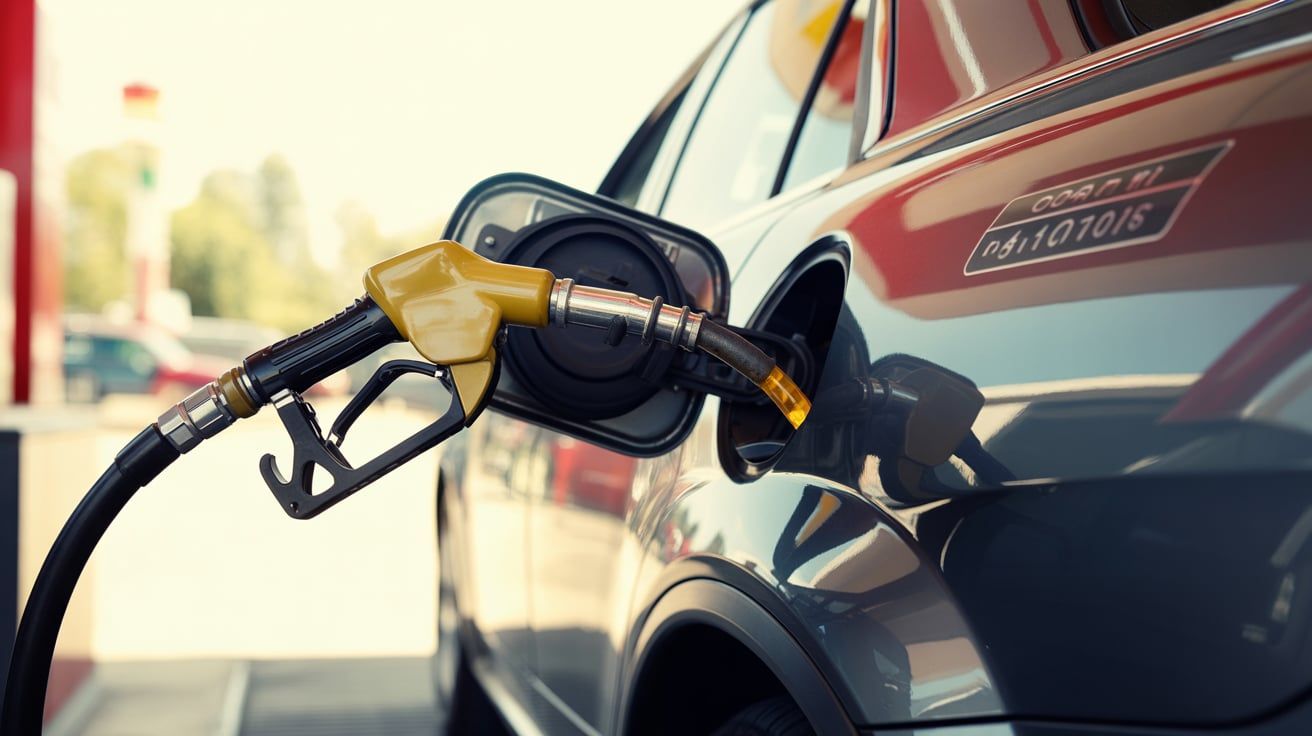
The Great Gas Grade Debate: Are You Throwing Money Away?
Ever stood at the gas pump, staring at the octane options, wondering if shelling out for premium is *really* worth it? You’re not alone. It’s a question that’s plagued drivers for decades. We’ve all heard whispers about improved performance, better fuel economy, and even engine longevity. But is there any truth to these claims, or is it just clever marketing designed to lighten your wallet? The answer, as with most things in the automotive world, is a bit more nuanced than a simple yes or no.
The truth is, for the vast majority of cars on the road today, premium gas is simply unnecessary. Unless your car’s manufacturer specifically recommends or requires it, you’re likely just burning extra cash with each fill-up. Let’s dive into the science behind octane ratings and explore why premium isn’t always the premium choice.
Understanding Octane: What Does It Really Mean?
Octane rating is a measure of a fuel’s ability to resist “knocking” or “pinging” during combustion. Knocking occurs when the air-fuel mixture in your engine ignites prematurely, causing a harsh, metallic sound and potentially damaging your engine over time. Higher octane fuels are more resistant to this premature detonation. Think of it like this: octane is a fuel’s resistance to self-igniting under pressure. The higher the number, the more pressure it can withstand before igniting.
Regular gasoline typically has an octane rating of 87, while premium gas usually ranges from 91 to 93. The key takeaway here is that octane rating doesn’t equate to more power or better fuel economy *unless* your engine is specifically designed to take advantage of it. Using premium gas in a car that doesn’t need it won’t magically boost its horsepower or improve its MPG. It’s like wearing running shoes to a black-tie event – they might be high-quality, but they’re not appropriate for the occasion.
When Premium Gas Is Actually Required (And Why)
So, when *is* premium gas necessary? The answer lies in your car’s engine design. High-performance engines, particularly those with turbochargers or superchargers, often have higher compression ratios. This means the air-fuel mixture is compressed to a greater extent before ignition, which increases the risk of knocking. To prevent this, these engines require higher octane fuel to ensure controlled and efficient combustion.
If your car’s owner’s manual explicitly states that premium gas is “required,” then you should absolutely use it. Ignoring this recommendation could lead to engine damage over time. Some manufacturers may state that premium gas is “recommended,” which means the car will run fine on regular gas, but you might experience slightly better performance with premium. In these cases, it’s up to you to decide if the potential performance gain is worth the extra cost. Always consult your owner’s manual for the definitive answer.
The Myth of “Cleaning” Additives in Premium Gas
One common misconception is that premium gas contains more detergents or cleaning additives than regular gas, leading to a cleaner engine. While it’s true that all gasoline sold in the US contains detergents to help prevent deposits from forming in your engine, the amount and type of detergents are generally the same across all octane grades. The EPA mandates minimum detergent levels, so you’re not necessarily getting a “cleaner” fuel by opting for premium.
If you’re concerned about engine cleanliness, a better approach is to use a dedicated fuel injector cleaner periodically, regardless of the octane grade you use. These cleaners are specifically formulated to remove deposits and keep your fuel system running smoothly. Regular maintenance, including oil changes and air filter replacements, is also crucial for maintaining engine health and performance.
The Impact on Your Wallet: Calculating the Real Cost
Let’s talk numbers. Premium gas typically costs 20-40 cents more per gallon than regular gas. Over the course of a year, that can add up to a significant amount of money, especially if you drive a lot. Imagine filling up a 15-gallon tank once a week. At a 30-cent premium, you’re spending an extra $4.50 per fill-up, which translates to over $230 per year. If your car doesn’t require premium, that’s $230 that could be used for other maintenance, a weekend getaway, or simply saved.
Before you automatically reach for the premium pump, take a moment to consider the long-term financial implications. Use a fuel cost calculator to estimate how much you’re spending on gas each year and compare the cost of regular versus premium. You might be surprised at how much you can save by sticking with the recommended octane grade.
What About Older Cars? Does Premium Help?
While modern cars are equipped with sophisticated engine management systems that can adjust to different octane levels, older cars might behave differently. Some older cars, particularly those with carburetors, may experience knocking or pinging on regular gas, even if they weren’t originally designed for premium. This is often due to wear and tear on engine components, such as carbon buildup in the combustion chamber, which can increase compression and make the engine more prone to knocking.
If you own an older car and notice knocking or pinging on regular gas, try using premium gas to see if it resolves the issue. If it does, it might be a temporary solution, but it’s also a sign that your engine might need some maintenance. Consider having your car inspected by a qualified mechanic to identify the underlying cause of the knocking and address it properly. Sometimes, a simple tune-up can make a big difference.
The Future of Fuel: Electric Cars and Beyond
As the automotive industry shifts towards electric cars, the debate over gasoline octane will eventually become a thing of the past. Electric cars don’t require gasoline at all, eliminating the need to choose between regular and premium. The rise of electric cars represents a significant change in how we think about driving and energy consumption. With advancements in battery technology and charging infrastructure, electric cars are becoming increasingly accessible and practical for everyday use.
Even with the growing popularity of electric cars, gasoline-powered vehicles will likely remain on the road for many years to come. However, the focus is shifting towards more efficient and sustainable fuel options, such as biofuels and synthetic fuels. These alternative fuels could potentially offer similar performance to gasoline while reducing greenhouse gas emissions. The future of driving is undoubtedly changing, and it’s exciting to see the innovations that are shaping the automotive landscape.
Making the Right Choice: Trust Your Owner’s Manual
Ultimately, the decision of whether or not to use premium gas should be based on your car’s specific requirements. Consult your owner’s manual for the manufacturer’s recommendation. If premium gas is required, then use it. If it’s recommended, weigh the potential performance benefits against the extra cost. And if it’s not mentioned at all, stick with regular gas and save your money.
Remember, proper car maintenance, including regular oil changes, air filter replacements, and timely tune-ups, is far more important for engine health and performance than simply using premium gas. By following the manufacturer’s recommendations and taking good care of your car, you can ensure that it runs smoothly and efficiently for years to come. So, next time you’re at the gas pump, make an informed decision and choose the fuel that’s right for your car and your wallet. Happy driving!


